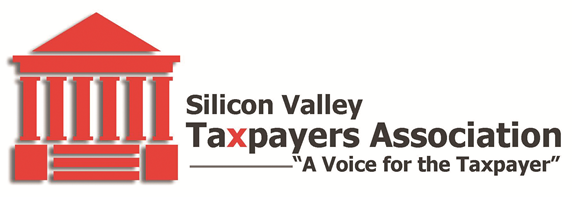-
-
-
Elections
-
-
-
-
-
-
-
-
-
-
-
-
-
-
-
-
-
-
-
-
-
-
-
-
-
Minimum wage hike would destroy SJ jobs [SJ Mercury News 11/5/12]
-
-
-
-
-
-
-
-
-
-
-
-
-
-
-
-
-
-
-
-
San Jose Mercury News
Minimum wage hike would destroy San Jose jobsby Jim Cox and John Roeder
Special to the Mercury News
November 5, 2012
If San Jose voters approve Measure D, the proposed 25 percent increase to the minimum wage, they will be destroying entry-level jobs.
Maybe he wants an internship, or she's juggling part-time work while taking classes, or he hopes to grow his skills on the job. Either way, the hike from $8 per hour to $10 per hour would mean that a job seeker whose labor is currently worth $8.34 or $9.07 or $9.62 would not get that vital first job offer.
A minimum-wage law mandates only the wage. It does not -- indeed, cannot -- mandate that anyone will actually be awarded a job at that wage.
Rather than finding employment and opportunities to get their foot in the door, these individuals will face rejection and frustration. Unemployment these past four years has been tough enough, at 7.8 percent and higher, nationally; 10.2 percent in California; and 8.5 percent in the San Jose area. Furthermore, the Bureau of Labor Statistics reports that an alarming 23.7 percent of 16- to 19-year-olds are unemployed.
Measure D would only make matters worse.
The economics are simple: More of anything -- including labor -- is demanded when it is available at a lower price, while less of anything is demanded at a higher price. So at higher prices, demand for workers would drop; they'd be left out of the job market, forced to find their way through other means.
In other words, a beginning worker whose developing skill set won't yet generate enough revenue for a local business to justify that expense of $10 every hour simply won't be offered a job. The measure doesn't even make an exception for restaurant servers earning tips, for example, or baby sitters.
It is easy to understand the zeal of the San Jose State University students who spearheaded Measure D. No doubt they believe, like most advocates do, that a higher minimum wage will help the working poor. Unfortunately, it's these very workers who would be harmed the most.
A better alternative would be abolishing taxes on the poor and lowest-income earners.
Students who want to empower the poor and young among us will have a larger impact by proposing measures to reduce or end taxes on the necessities of life -- food, clothing, utilities, housing. This would allow everyone a higher standard of living without threatening job-seekers' access to employment or their ability to provide for themselves -- which is exactly what mandating wage levels would do.
Let's take actions that will actually help young people already facing a paralyzing 23.7 percent unemployment rate. And let's have confidence in employers' and employees' ability to make agreements based on the real value of each individual's labor, not some made-up amount that government requires, arbitrarily, for everyone.
Why is it Measure D supporters didn't suggest raising the wage even higher, to, say, $20 per hour? Because, implicitly, they agree: Higher minimum wages will destroy San Jose jobs.
Jim Cox is the author of "Minimum Wage, Maximum Damage" and, more recently, "The Haiku Economist." John Roeder is president of Silicon Valley Taxpayers Association and a business owner in San Jose. They wrote this for this newspaper.
This article is also posted at the Web site of San Jose Mercury News, here.
